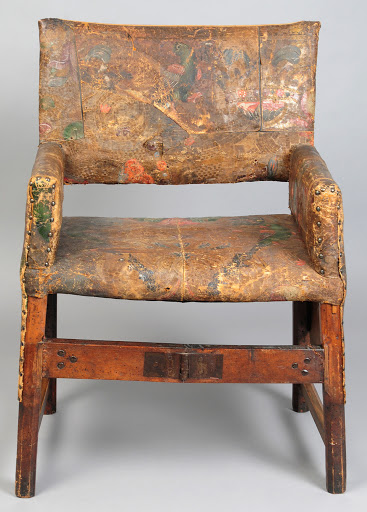Once in a while, everybody gets bitten by the travel bug. Leibniz too was familiar with the urge to travel, the search for unknown places and cultures. In the course of his life, he covered a distance of approximately 20,000 kilometres at an average speed of 2-4 horsepower. He was constantly on the go. "Rest precedes stupidity. One must always find something interesting to do, to think, to design - either for the benefit of all or for the benefit of individuals", he once wrote.
Leibniz travelled to Italy by means of his horse and wagon, explored the Harz Mountains by stagecoach on more than 38 occasions, sailed to England and went on sleigh rides through the Bavarian and Bohemian Forest in winter. He spent 2 years and 7 ½ months in Southern Germany, Austria and Italy conducting research. He verified the ancestors of the House of Welf using archive material and tombstones in order to obtain the title of "Electorate" for the House of Hanover. Leibniz later wrote that he "gained true satisfaction from people, not documents". While travelling, he maintained contact with fellow scholars, enjoyed the theatre and the opera, visited historical churches, art and mineral collections as well as pumping stations and mines to learn about the latest technologies. He climbed Mount Vesuvius in 1689.
Since travelling in the 17th century was quite uncomfortable, Leibniz worked on improving coach suspensions and commissioned a portable folding chair for his journeys. Initially, post riders delivered messages across borders. They were later replaced by stagecoaches that also carried passengers. A network of relay stations located at a distance of 15-30 kilometres facilitated the replacement of horses, the coach itself or the postillion (driver).
Moreover, Leibniz designed a flexible passenger cabin for stagecoaches, which consisted of a waxed fabric covering that could be moved to another coach, such as in the event of a lane change. Due to the different types of stagecoaches used in various countries, the deep furrows carved into the dirt roads varied considerably.


 ©
GWLB Hannover
©
GWLB Hannover
However, his constant absence from the residence city did not go unnoticed. "Monsieur, I am overjoyed to learn that you have not passed away to continue your search for the origin of the House of Brunswick in the afterworld. [...] Since your departure we had not heard anything that lead us to believe that you are still alive", wrote a slightly disgruntled Duchess Sophia after Leibniz had not sent word for months while spending time in Italy. Duke George Luis even compared his court historiographer with the "White Lady": "When asked why he is rarely seen he always offers the same excuse, that he works on his invisible book [the history of the House of Welf] [...]". In 1704 and once more in 1711, Leibniz was officially banned from travelling and asked to stay in Hannover until he finished his work on the history of the House of Welf.
While working from home, Leibniz maintained contact with many international scholars he had met during his travels and exchanged letters with approximately 1,200 correspondents based in Europe and beyond. In the end, his research contributed to the award of the title "Electorate" for the House of Hanover. However, Leibniz did not give up travelling after all. Following an official stay in Wolfenbüttel, he suddenly turned up in Berlin. On another occasion, he pretended to undergo a course of treatment in Karlsbad while travelling on to Vienna. In a letter dated 1708 and addressed to the worldly scholar based in Hannover, Electress Sophia jested: "The Elector says he intends to advertise a reward in the papers as an incentive for locating you".








